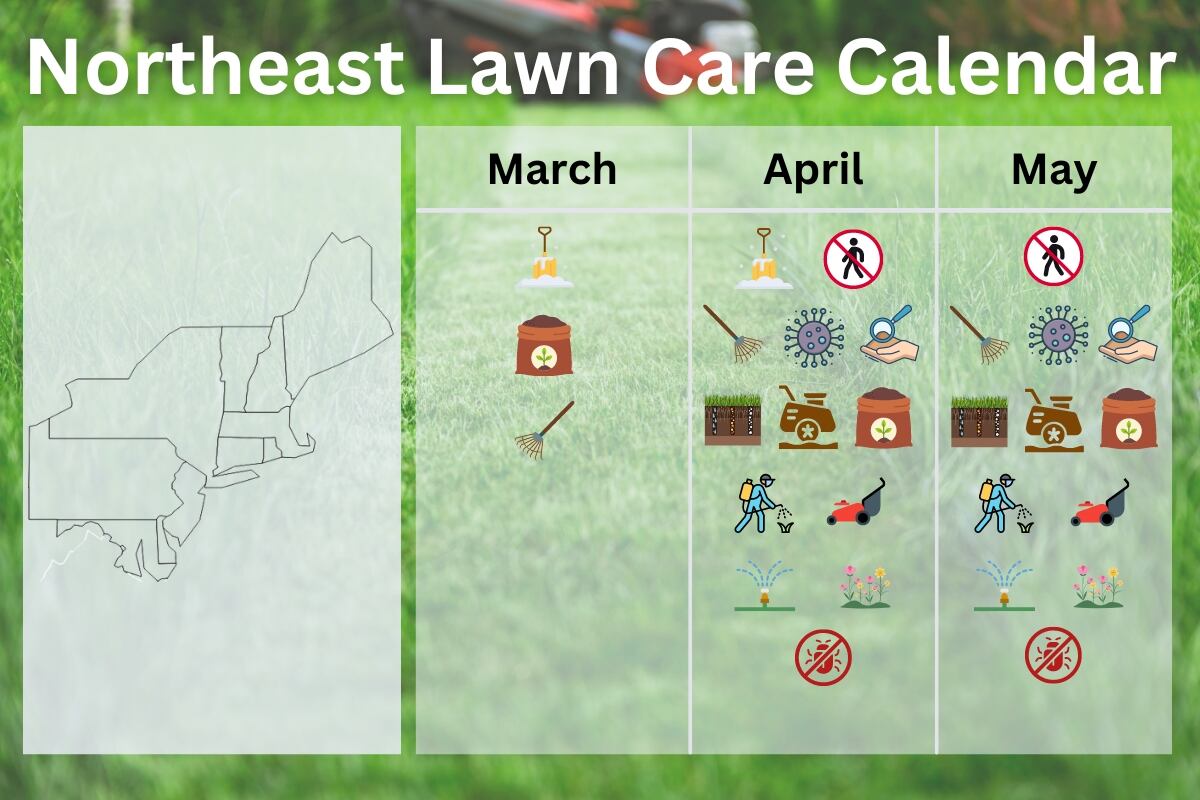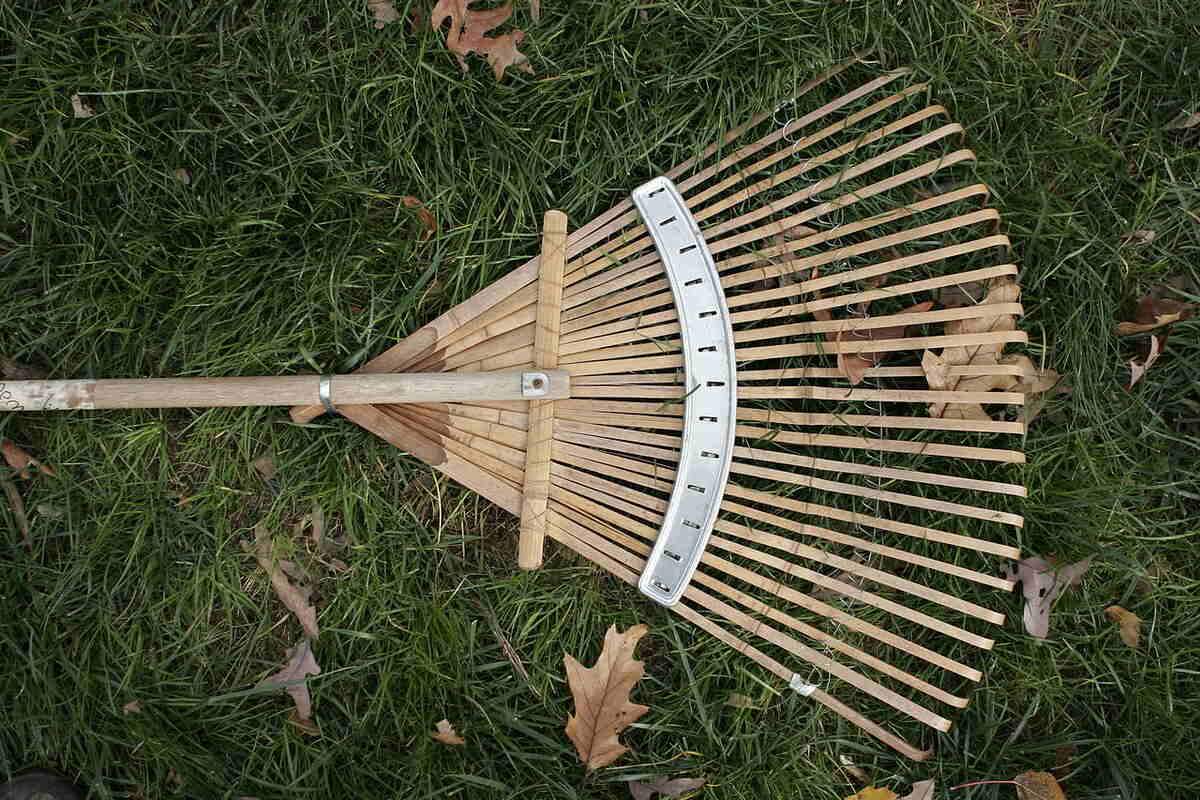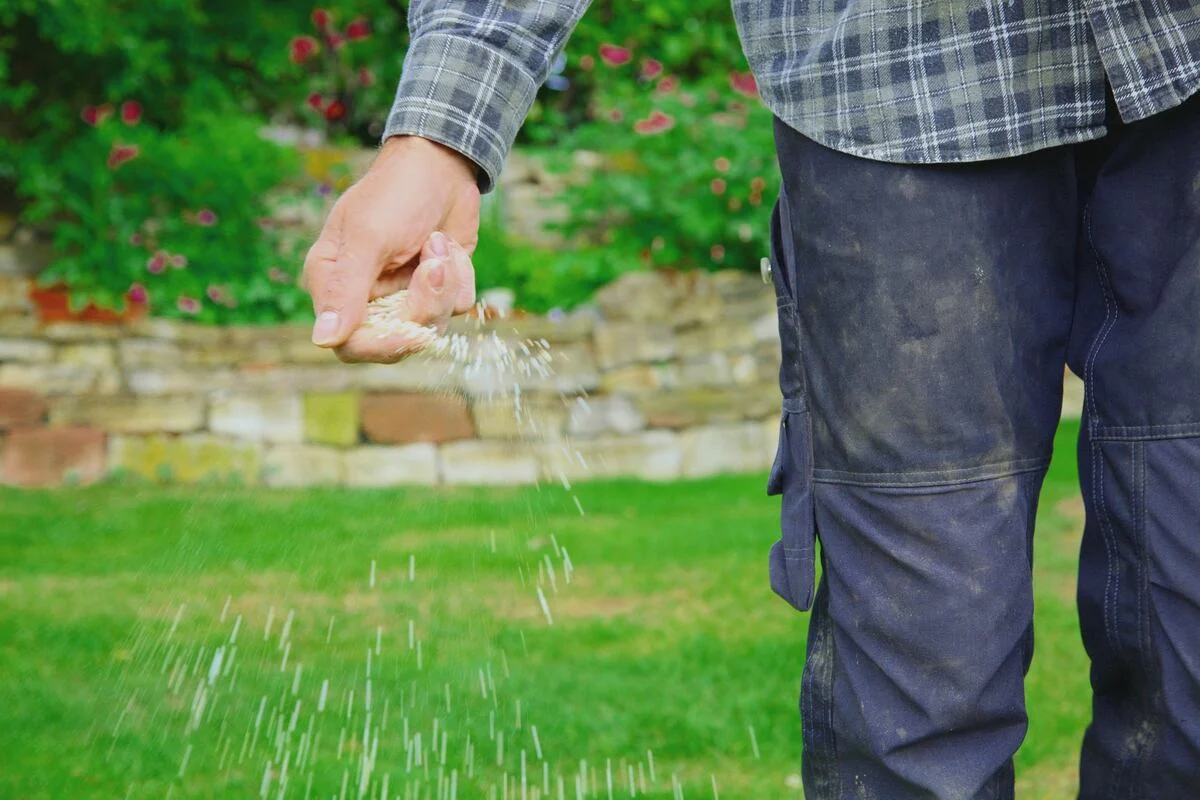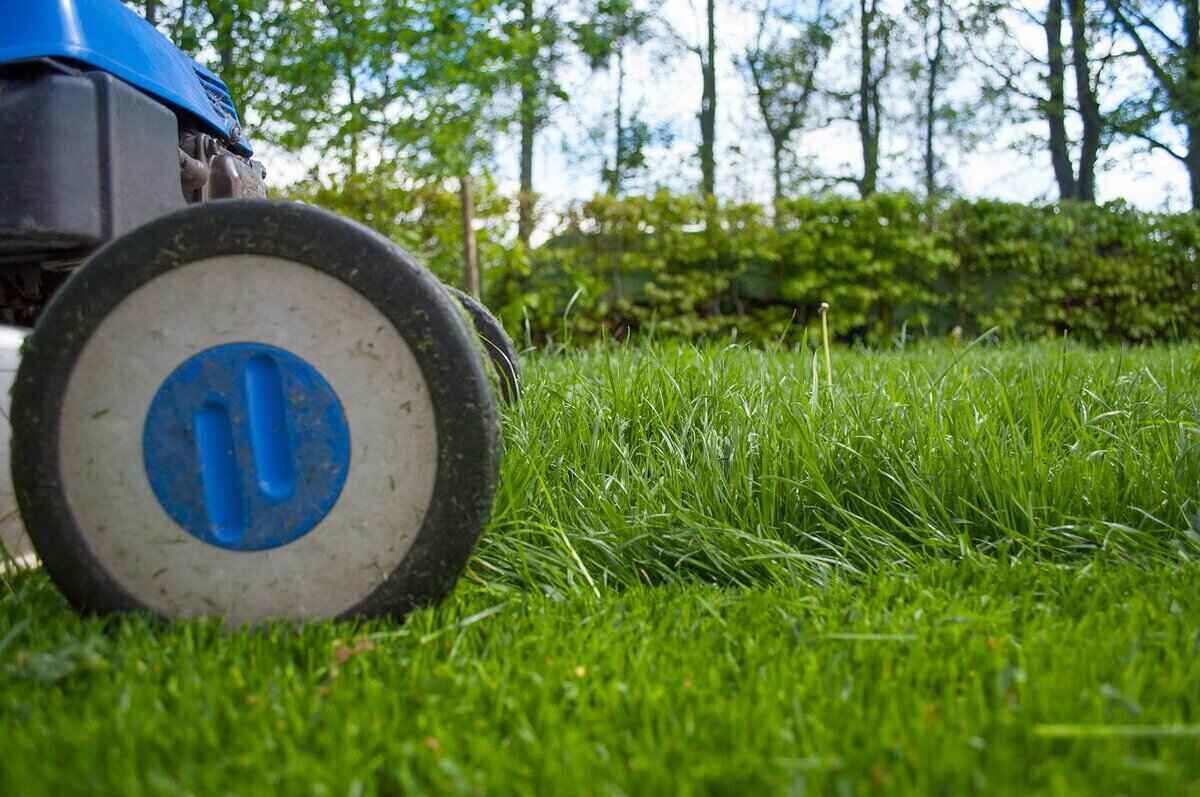
Spring is an important time for your Jacksonville lawn; it’s the time for awakening and new growth. So, it’s important for Jax homeowners to be extra rigorous with their lawn care when spring time rolls around. Here are some spring lawn care tips for Jacksonville homeowners:
- Clean Up Your Yard
- Prepare Your Mower
- Adjust Your Irrigation
- Aerate Your Lawn
- Test Your Soil
- Fertilize at The Right Time
- Watch For Weeds
- Remove Pests
- Overseed If Needed
- Add Mulch
- FAQ
1. Clean Up Your Yard
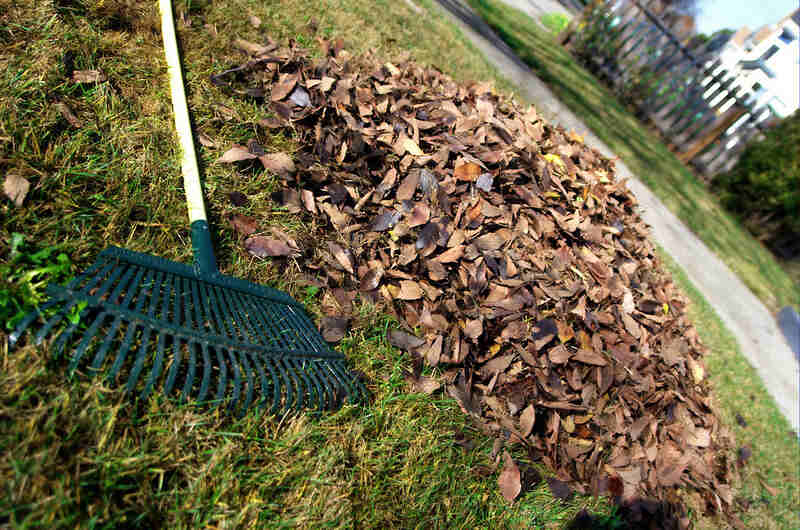
Before doing anything else, you should clean your yard. Grab your rake and start clearing your turf of twigs, leaves, and other debris. You should be able to see bare spots, brown turf, and weeds, so now you know what to focus on.
Raking can also help clear thatch, which is the layer of dead and living plant material above the soil and below your turf. Thatch isn’t a problem in itself, but like many things, too much thatch is bad. A thick layer of thatch can foster diseases and pests, restrict the movement of air, water, and nutrients, and prevent your lawn’s root system from growing deep. You should dethatch once a year.
2. Prepare Your Mower
Ready, set, mow! But before you rev up your mower, you should check if it’s in good condition. Check if the parts are working properly, if your oil is still good, and if its blades are sharp. Sharp blades are important because they reduce lawn stress and injury, which is crucial for a lawn that’s coming back from dormancy in spring.
When mowing your lawn, set your mowing height according to the type of grass your yard has. St. Augustinegrass has different mowing requirements than centipedegrass, for example. After mowing, you can leave your grass clippings on your turf, which will decompose and nourish your lawn.
3. Adjust Your Irrigation
When temperatures begin to warm up, you may need to adjust your irrigation accordingly. Before watering your lawn on your assigned Jacksonville irrigation day, check if your turf actually needs water. Here are some signs that mean your turf is parched:
- Grass blades folding up
- Wilting
- Grass turning blue-gray
- Footprints don’t disappear after you walk on the grass
4. Aerate Your Lawn
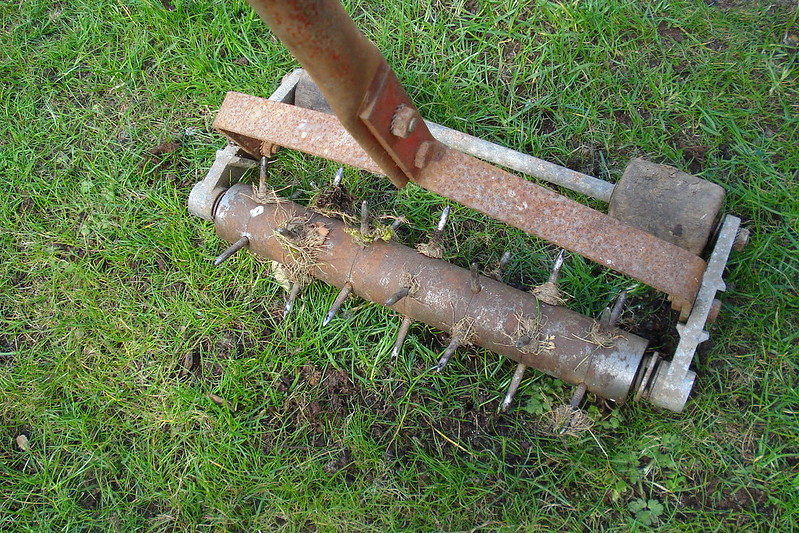
When your soil becomes dry, it can become hard and solidly compacted. When this happens, you should aerate your lawn. Lawn aeration is the act of poking small holes into your soil to loosen up compacted dirt so that water, air, and nutrients can easily get to your turf’s root system.
It’s recommended that you aerate your lawn at least once a year when there’s active growth and when the soil is moist. That makes springtime one of the best seasons to aerate your lawn.
5. Test Your Soil
Before adding fertilizers, it’s a good idea to test your soil. While you can test your soil with a DIY soil testing kit, you can also ship a sample off to a laboratory like the University of Florida Institute of Food and Agricultural Sciences (UF/IFAS) Duval County Extension Office. Testing your soil will tell you how your soil is doing, its pH level, its salt level, and what nutrients it’s lacking. You can use these results to choose the right fertilizer.
6. Fertilize at The Right Time
Now that the temperature is warming up, your turf will start waking up from dormancy. The precious nutrients from lawn fertilization will boost your turf’s growth, letting it outcompete weeds.
However, it’s important to fertilize at the right time. In North Florida, homeowners should fertilize in mid-April. Any earlier is a waste; your grass won’t grow even if you fertilize it, so the fertilizer will just leach into the soil. You should also avoid fertilizing prior to a heavy rain forecast to prevent soil leaching.
Use a slow-release nitrogen fertilizer; look for “controlled release”, “slow release”, “water insoluble nitrogen”, or “polymer-coated” on the label. You should also use a fertilizer with a middle number that’s 0 or 2, as your fertilizer shouldn’t have more than 2% phosphorus. Florida soil is naturally high in phosphorus, so your soil will hardly need more.
7. Watch For Weeds
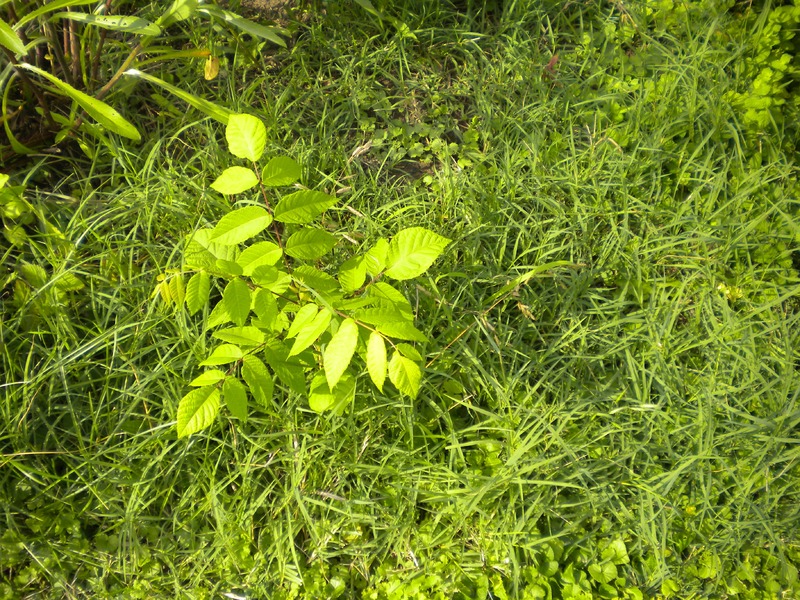
As spring comes around, you should start checking for weeds at least once a month. Go around your yard and hand-pull any weeds that you find. Make sure that you get the whole plant; use a hand tool to help you if it’s a weed with runners or deep roots.
If weeds have taken over your garden, use an herbicide and apply it at the proper time. If you want to target weeds before they’ve sprouted, then apply pre-emergent herbicide around mid-February to early March.
If worse comes to worst, you may need to get professional weed control services involved, as they’re better equipped to deal with stubborn unwanted plants.
8. Remove Pests
As your garden starts growing again, you might have to deal with common landscape pests. If your lawn is looking a little shabby – think bare patches and dying turf – then pests might have set up shop already. You might be able to handle a few pests, but once you’ve got an infestation, it’s better to hire a professional pest control service.
9. Overseed If Needed
Does your Jacksonville lawn have bare patches? You might want to consider overseeding it. Overseeding is adding grass seeds to your existing turf to cover up any bare spots. You want to overseed your warm-season grass a few months after you’ve dealt with weeds, or around late spring to early summer. Wait for soil temperatures to stabilize between 70 and 90 degrees Fahrenheit.
10. Add Mulch
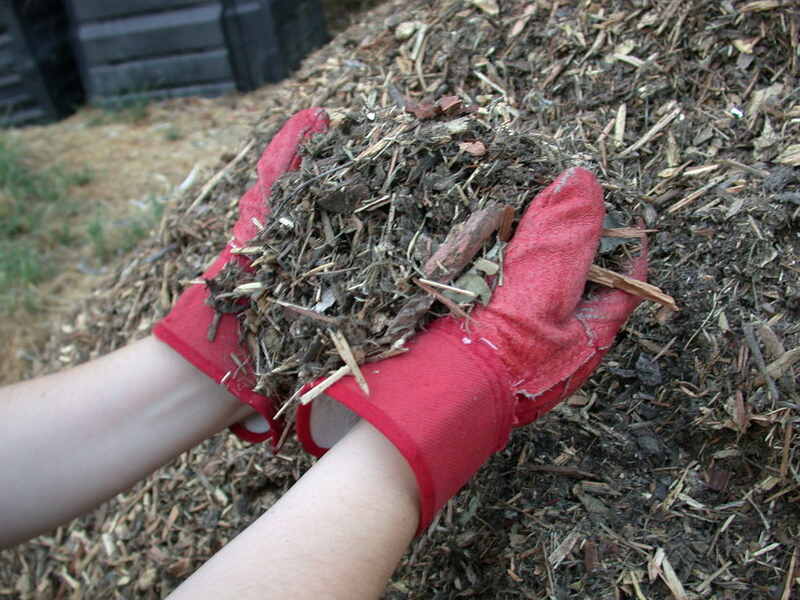
Spring is a good time to add or replace mulch. Mulch has many benefits, including deterring weed growth and insulating your soil from the heat of the coming season. Choose an organic mulch, which can be anything from grass clippings and leaves to bark chips and pine needles.
Inorganic mulch can actually trap heat, which might be good in some regions, but not in sunny Jacksonville.
FAQ About Spring Lawn Care
As tempting as it is to reduce your work by using a weed and feed product, it’s not recommended for Jacksonville homeowners. The timing for a weed and feed product is a complete mismatch, as many weed and feed products have a pre-emergent herbicide for their weed control.
Pre-emergent herbicides should be applied from February to March, while fertilizers should be applied in mid-April at the earliest. Besides, weed and feed may not be the best choice for your lawn’s long-term health.
It’s not recommended to have short and frequent watering sessions. Long, infrequent watering promotes healthy and deep root systems, so it’s better to water your lawn once a week.
Besides, Jacksonville residents can’t use their irrigation systems more than twice a week anyway, depending on the time of year. You’d have to water your lawn by hand if you wanted to water it every day.
However, there’s one exception to this rule. New grass needs more water than established turf, so you might need to water it almost every day for a while.
The UF/IFAS doesn’t recommend liming your lawn at all unless your soil test says you need it. If you’re not careful, you could kill your lawn if you apply too much lime! Always consult an expert and get a soil test before you lime your North Florida lawn.
Help Your Jacksonville Lawn Spring Back to Life
Spring is a time for growth and recovery. Following these tips can help your Jacksonville lawn bounce back from dormancy and become lush and beautiful again.
If spring lawn care gets too overwhelming, consider hiring a professional lawn care company. Pros can keep your yard in top form while you sit back, relax, and enjoy your green lawn. Contact a Jacksonville lawn care specialist to help with your lawn maintenance today.
Main Photo by: Wallpaper Flare
